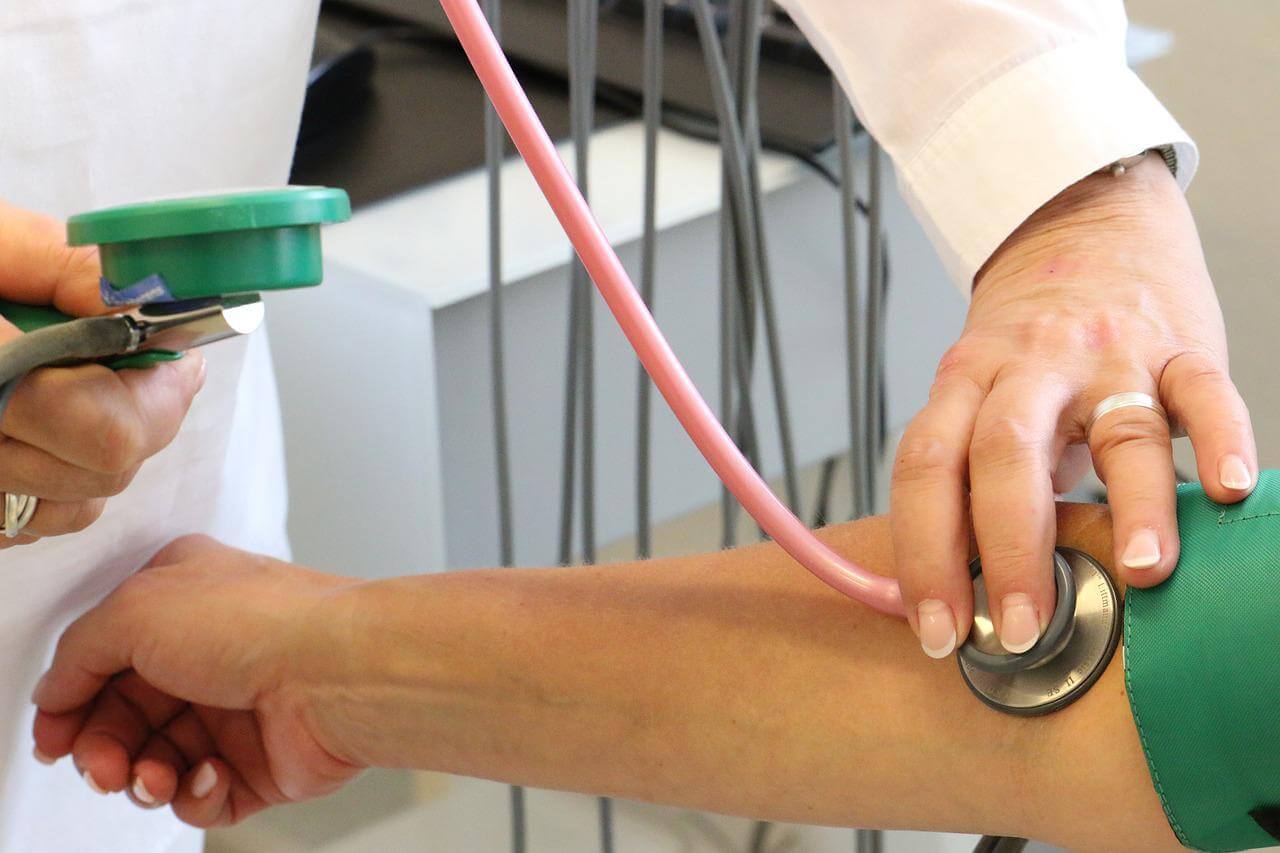Hi there, Welcome to this fun and informative Neonatal Nurse Practitioner article!
This article will cover the definition, duties, qualities, and advantages of being a Neonatal Nurse Practitioner.
At the end of the reading, you’ll be well equipped with all the necessary information about the career to help you make the most informed choice.
Check out our key topics:
- What is a Neonatal Nurse Practitioner (NNP)
- Duties and responsibilities of an NNP
- Qualities of an efficient Neonatal Nurse Practitioner
Let’s get started!
Introduction

Over 7000 Neonatal Nurse Practitioners are currently working in the US, according to data from the National Certification Corporation (NCC)
These specialized Nurse Practitioners versed in pharmacology, direct patient care, clinical diagnostics, and advanced health assessments help treat critically ill newborns.
NNPs are vital cogs in the healthcare sector, considering that thousands of infants are born with severe health issues every year.
NNPs work in various settings and apply their nursing practicum to help save thousands of newborn lives.
If you’re interested in working as a Neonatal Nurse Practitioner, this article is for you.
Read on for the Neonatal Nurse Practitioner definition.
What’s a Neonatal Nurse Practitioner?

According to the National Association of Neonatal Nurses (NANN), Neonatal Nurse Practitioners are Advanced Practice Registered Nurses (APRNs) with the training and skills to treat severely sick newborns.
Neonatal Nurse Practitioners provide high-quality primary, critical, chronic, and acute care to children from the neonate stage to two years.
NNP often works as part of a larger healthcare team providing high-quality and effective emergency and scheduled medical care to neonates.

Neonatal Nurse Practitioners work in various settings, including Neonatal Intensive Care Units (NICU), delivery rooms, emergency rooms, and specialty pediatric clinics.
What does a Neonatal Nurse Practitioner do?
Read on for the answer to this and much more.
Roles and responsibilities of a Neonatal Nurse Practitioner

NNPs are Primary Healthcare Providers who dispense life-saving medical treatment to children born with severe conditions.
In all the different settings where NNPs work, their primary responsibility is to provide high-quality patient care to high-risk infants.
These Advanced Practice Nurses provide the following services:
1. Evacuate and transport patients
NNPs in some states provide specialized evacuation and transportation services to sick infants.
The NNPs in these cases rely on their Neonatal experience and years of experience to safely move sick Neonates who are more prone to infections and distress during travel.
And unlike ambulatory teams that are experienced in transporting adults, moving infants is far more challenging and requires the expertise of health professionals with Neonatal experience.
NNPs closely monitor the patient’s vitals, and In case of any medical emergencies during the transport, they will administer emergency resuscitation and other emergency procedures.
2. Prescribe and administer medication
Neonatal Nurse Practitioners with advanced drug training or a Physician’s consent may prescribe medication covered under their Individual States Board of Nursing.
Additionally, NNP administers both oral and intravenous medication to sick neonates.
Some states allow Neonatal Nurse Practitioners to operate independently of a Neonatologist and give them sweeping powers over drug prescription and administration.
3. Perform physical assessments and evaluation
Due to their specialized Nursing education and experience, Neonatal Nurse Practitioners evaluate and diagnose newborns’ medical issues.
The intense gestational assessment allows the NNP to create effective treatment plans and identify abnormalities and health issues affecting the patient.
Typically the health assessment will focus on the child’s heart and respiratory rate, systolic blood pressure, weight, temperature, and general appearance.
4. Diagnostic testing
Neonatal Nurse Practitioners are responsible for ordering or performing critical diagnostic tests on sick children.
Standard diagnostic tests on neonates include CT and MRI scans, blood work, endocrine and biochemical tests, echocardiograms, X Rays, and urine tests.

After interpreting the test results, NNps are better positioned to identify health issues and create effective treatment plans.
5. Collect and chart medical history
The Neonatal Nursing profession is an evidence-based practice, and NNPs are responsible for collecting comprehensive patient medical information.
NNP will collect detailed patient, maternal and obstetric medical history, which is vital for preparing effective patient treatment plans.
6. Prepare treatment plans and coordinate care
Neonatal Nurse Practitioners use the available resources and information to create effective treatment plans.
By using diagnostic tests, patient medical information, and multidisciplinary collaboration with other healthcare providers, NNPs help manage their patient’s medical conditions.
Neonatal Nurse Practitioners also act as care coordinators in some instances and help supervise and coordinate Neonatal RNs and other health team members.
7. Provide patient education
Neonatal Nurse Practitioners are responsible for providing current and relevant patient training to a neonate’s family, which is critical, especially for home care.
The Neonatal NP often utilizes videos, diagrams, tutorials, seminars, and practical demonstrations to educate caregivers.
Educating patients’ families is crucial in reducing medical emergencies and improving the quality of home healthcare services.
8. Perform medical procedures
Dealing with severely sick neonates requires that the Neonatal Nurse Practitioner be able to perform routine and emergency medical procedures.
Some of the procedures that Neonatal NPs perform include:
- Emergency resuscitation
- Lumbar punctures
- Intubation
- Colonoscopy
- IV insertion
- Airway management
Read on to understand the unique qualities and attributes of an efficient Neonatal Nurse Practitioner.
Qualities of an efficient Neonatal Nurse Practitioner

The Neonatal Nurse Practitioner job is quite challenging and stressful.
And since Neonatal Nurses offer various services ranging from critical, chronic, and basic care, they should possess the right mix of soft and hard skills.
Here are some of the desired qualities of efficient Neonatal Nurse Practitioners:
1. Problem-solving skills
NICU Nurse Practitioners require excellent problem-solving and interpersonal skills to work in an intense and fast-paced medical environment.
Solving problems between staff, patients, and management reduces conflicts and improves care quality.
2. Communication skills
The ability to clearly and professionally articulate issues is a critical Nursing skill that all NNPs require.
NNPs work in especially high-risk areas where communication errors may result in severe medical conditions or even the loss of life.

As a Neonatal NPs, you can improve your communication skills by:
- Talking in a clear, measured tone
- Backing important information in writing
- Improving your listening skills
- Maintain eye contact when talking to people
- Welcoming questions and clarifications from your audience
3. Time management
Most Neonatal Nurse Practitioner job descriptions often feature proper time management skills are desirable traits for NNPs.
Time management refers to the ability of a Neonatal NP to effectively use the available time they have to complete their assigned task.
Effective management is essential because:
- Fosters peace within the healthcare team
- Improves service delivery
- Allows NNP to manage their workloads
- Reduces errors and improves efficiency
- Builds team spirit
4. Leadership skills
NNPs need solid leadership skills to bring out the best from the Neonatal healthcare teams they lead.
Leadership skills mean that you must be ready to compromise, motivate, and make difficult management decisions for your team’s success.
To improve your leadership skills:
- Look for a mentor
- Think out of the box
- Play by the rules
- Understand your team members’ strengths and weaknesses
5. Attention to detail
Being attentive is a critical skill that all healthcare professionals, especially neonatal nurse practitioners, need due to the sensitive nature of their jobs.
When dealing with infants, Neonatal NPs need to be especially vigilant, considering that neonates cant express their medical issues like adults.
NNPs need to pay close attention to the physical, physiological, and diagnostic test results to get the correct diagnoses.
Additionally, collecting the correct medical histories, dealing with medical emergencies, and administering medications require attention to detail.
6. Empathy and compassion
Working with severely sick infants is an emotionally challenging experience, especially when delivering bad news to distraught parents and caregivers.
To emotionally connect and gain the trust of the patient’s family, you need to empathize and sympathize with them.
Empathy allows you to view the situation from the lens of the patient and their families, which goes a long way in improving your commitment to providing high-quality nursing services.

Empathy allows you to:
- Deliver high-quality services
- Build trust between you and the patient’s family
- Improves health outcomes
- Strengthen communication
7. Critical thinking
Critical thinking is a skill that allows NNPs to improvise and find solutions to often challenging situations with no clear answers.
In the course of your duties as an NNP Nurse, you will often have to think out of the box to get solutions to challenging and unexpected situations,
To improve your critical thinking skills, consider:
- Thoroughly studying the NNP scope of practice
- Thinking out of the box
- Reading widely
- Being open to different suggestions
- Improving your technical Nursing skills
8. Endurance
Neonatal Nursing is a physically and mentally demanding career requiring high endurance levels.
You will often have to work long shifts in high-pressure situations that require physical activities, and being physically fit goes a long way in improving your job output.
The mental strain associated with Neonatal Nursing is intense, and without being adequately prepared for the job, you may suffer a mental breakdown.
To improve your endurance, consider;
- Performing physical training
- Reading motivational material
- Surrounding yourself with positive people
- Engaging in relaxing activities
- Developing a positive attitude
There are many more qualities of an efficient Neonatal Nurse Practitioner, but these are the main ones.
Neonatal Nurse Practitioner Scope of Practice

Neonatology Nurse Practitioners are Advanced Practice Registered Nurses who offer Primary, Acute, and Chronic Nursing services to critically ill neonates and infants.
The Neonatal Nurse Practitioner education requirements include holding a BSN, Master’s, or Doctor of Nursing Practice degree.
Under the Neonatal Nursing scope of practice, NNPs are responsible for:
- Collecting patient medical information and history
- Perform routine and specialized medical procedures
- Ordering, undertaking, and interpreting diagnostic tests
- Teaching staff and caregivers on proper patient care techniques
- Supervise and coordinate Neonatal healthcare teams
- Perform thorough physical assessments
- Liaise with other Neonatal experts to create effective treatment plans
- Administer medication
- Perform ward rounds with Neonatologists
Neonatal Nurse Practitioner’s job outlook

Over 120000 children are born with congenital disabilities and a further 40000 with low birth weights annually, making Neonatal Nursing among the fastest-growing Nursing Specialties.
According to data from the American Bureau of Labor Statistics, the Neonatal Nursing Practitioner Specialty is expected to grow by 45% between 2020 to 2029.
The rapid growth of this Nursing Specialty can be attributed to:
- Increasing demand for preventive medical service
- Improving public health education
- The rapid growth of Neonatal health technology
- The rapid increase in birth rates
Neonatal Nurse Practitioners’ salary outlook is also quite positive at the moment.
The base salary for NNPs is increasing across most regions of the US, with San Francisco city and California being the highest-paying city and states, respectively.
Where do Neonatal NPs work?

Neonatal Nurse Specialists work across various settings dispensing both Advanced and Primary Care to infants.
NNPs deal with Neonates:
- Born prematurely
- Genetic abnormalities
- Birth related complications
- Drug dependencies
Areas where NNPs work includes:
Neonatal Intensive Care Units (NICU)
Most Neonatal NPs work in hospitals’ Neonatal Intensive Care Units.
According to a survey by the National Association of Neonatal Nurses, over 90% of all NNPs work in different levels of NICUs.

Here are the four primary levels of NICUs:
Level I NICU
The first level of NICU provides care to healthy, full-term babies born without any significant complications or congenital disabilities.
Level 1 NICUs offer primary newborn care, including evaluating, stabilizing, and offering basic postnatal services.
Level II NICU
Level 2 NICU are special care nurseries that provide more advanced medical care to infants recovering from severe health issues or born more than 32 weeks of gestation.
Medical services offered in a level 2 NICU include:
- Offering respiratory management services
- Intravenous medical administration
- Close infant monitoring
- Treating medical issues like jaundice
- Intravenous feeding services
Less than 9% of NNPs work in these facilities.
Level III NICU
The level 3 Subspeciality Newborn Care Units offer advanced medical care to premature babies
Level 3 NICUs admit:
– Neonates born with less than 1500 grams and 32 weeks
– Critically ill infants
– Infants needing surgery
– Neonates needing respiratory support
Level 3 NICUs provide:
- Respiratory assistance
- Advanced imaging services
- Intravenous feeding and drug administration
- Postoperative surgical care
60% of NNPs work in level 3 NICUs.
Level IV NICU
Level 4 Acute Care Nurseries offer the highest level of Neonatal medical services.
These special Neonatal Care Units are usually regional hospitals that support the other NICU units within a region.
Level 4 NICUs are usually staffed with different Neonatal Specialists, including Pediatric Surgeons, Neonatologists, Neonatal Nurse Specialists, and other Neonatal Subspecialties.
Level 4 NICUs offer the following services:
- Special surgical procedures
- Special evacuation and transportation
- Advanced diagnostic testing
- Respiratory services
- Close infant monitoring
33% of Neonatal NPs work in these units.
Other settings where Neonatal Nurse Practitioners work include:
- Delivery rooms
- Outpatient clinics
- Medical centers
- Community health agencies
- Private children clinics
- Medical evacuation and transport facilities
Advantages of being a Neonatal NP

Working as NNP offers various advantages, including:
High salary
According to the American Association of Nurse Practitioners (AANP), Neonatal NPs earn the second-highest wage of all NPs in the US.
The high NNP salaries can be attributed to the high demand for Neonatal services and the specialized NNP training.
Factors that affect Neonatal NP salaries include:
- Years of experience
- Levels of Nursing Education
- Number of hours worked
- Location
- Union status
Positive career outlook
According to the Bureau of Labor Statistics, the Neonatal Nursing Practitioner Nursing Specialty is expected to grow by 45% before 2029.
The increased demand for Neonatal Nursing services guarantees consistent NNP job opportunities.
Job satisfaction
Neonatal Nurse Practitioners experience high levels of satisfaction in their jobs.
According to a National Association of Neonatal Nurses survey, 73% of NNPs derive satisfaction from their jobs.
Some of the factors that improve levels of job satisfaction include:
- High salaries
- Excellent working conditions
- High levels of responsibilities
- Sense of accomplishment
- Stable job opportunities
Excellent work environment
Most Neonatal NPs enjoy an excellent work environment with numerous perks and benefits, including life, health, and travel insurance.

Additionally, most NNPs work 40-hour weeks, leaving them enough room to rest and recharge.
Flexible study schedules
Unlike other Nursing programs that demand in-person training, most NICU Nurse Practitioner programs are flexible and accommodate part-time students.
The flexible NNP Programs allow students to attend classes remotely and qualify as NNPs while maintaining a healthy work-life balance.
Membership in professional Nursing bodies
Being a Neonatal NP opens opportunities for you to join professional Nursing bodies.
NNP professional bodies include the American Academy of Neonatal Nurses, the National Association of Neonatal Nurse Practitioners, and the American Association of Nurse Practitioners.
Membership in these bodies allows you to enjoy excellent benefits, including networking, professional development, and exposure to different job opportunities.
Conclusion

If you desire personal development, a need for an excellent work-life, and high job satisfaction, then being a Neonatal Nurse Practitioner is the best career choice for you.
You get to help severely sick children and reap handsome rewards for your efforts.
And with the rapid growth of the Neonatal Nursing Specialty and positive job outlook, Neonatal Nursing offers a stable and respectable opportunity for you to help the world.
We hope that this in-depth Neonatal Nurse Practitioner article has answered all questions on this topic.
Please keep reading for comprehensive answers to our reader’s frequently asked questions.
Good luck.
FAQs

How many hours does a Neonatal Nurse Practitioner work?
According to Nursingprocess.org, Neonatal Nurse Practitioners often work 40 -48 hours per week. The hours worked depend on the patient caseload number of the Emergency and Neonatal departments. A typical NNP working week may look like this:
– Four 10-hour shifts
– Two 24-hour shifts
– Five 8-hour shifts
– Six 8-hour shifts
What does a Neonatal Nurse Practitioner do?
A Neonatal Nurse Practitioner is responsible for:
– Evaluate and diagnose neonates health conditions
– Preparing effective treatment plans
– Coordinating patient care with other healthcare professionals
– Prescribing and administering medication
– Supervising Neonatal RNs
– Offering proper patient care training to caregivers and parents
– Performing emergency medical procedures
– Ordering for medical tests
Neonatal Nurse Practitioner schooling years
NPs need at least 18.7 years of schooling with 6 or 7 years of post-secondary school training. An NNP needs:
– 12 years (Primary and secondary training)
– Two to four years for a Nursing degree (ADN or BSN)
– Two or three years for a Master of Science in Nursing (MSN) degree
How to become a Neonatal Nurse Practitioner
These are the steps to becoming an NNP:
– Complete a BSN degree from an accredited School of Nursing
– Earn an RN license by passing the NCLEX RN Licensure Exam
– Gain relevant Nursing experience
– Complete an MSN or DNP Nursing program from accredited institutions
– Earn an NNP Certification from the NCC
Why become a Neonatal Nurse Practitioner
Here are the top reasons you should consider joining the Neonatal Nurse Career:
– Enjoy a high Neonatal NP Salary
– High growth of the Neonatal Nurse Practitioner sector
– Enjoy stable and long-term job opportunities
– Enjoy excellent working conditions
– Enjoy high job satisfaction
– Making a positive contribution toward a newborn’s life
What’s the difference between a Neonatal Nurse and Neonatal NP?
Neonatal Nurse Practitioner vs Neonatal Nurse data includes:
Education level
– Neonatal Nurses – BSN degree
– Neonatal NPs
– Doctor of Nursing Practice (DNP) or Master’s degree Nursing designation
– Neonatal Nurses – RNs
– Neonatal Nurses – APRNs
Benefits of being a Neonatal Nurse
The benefits of being a Neonatal Nurse include:
– High job stability
– Availability of well paying Neonatal Nursing jobs
– Excellent chances of career growth
– Less physically demanding than other Nursing Specialties
– Enjoy great work benefits and perks
– Gain specialized training and Nursing experience
Neonatal Nurse Practitioner requirements
To work as an NNP, you need to fulfill the following requirements:
– Earn a Nursing degree (BSN, ADN) from a certified Nursing school
– Pass the National RN licensure certification exam
– Gain Neonatal Nursing experience
– Earn a Master’s or Post-Masters degree
– Earn an NNP-BC certification
Neonatal Nurse Practitioner info
Check out these interesting Neonatal Nurse Practitioner facts according to the BLS and Salary.com:
– Period of study – At least 18.7 years
– Education level – Master or a post-master degree
– Certification – RN and NNP certification
– Job outlook – 45% by 2029
– Median salary – $123780 per year









